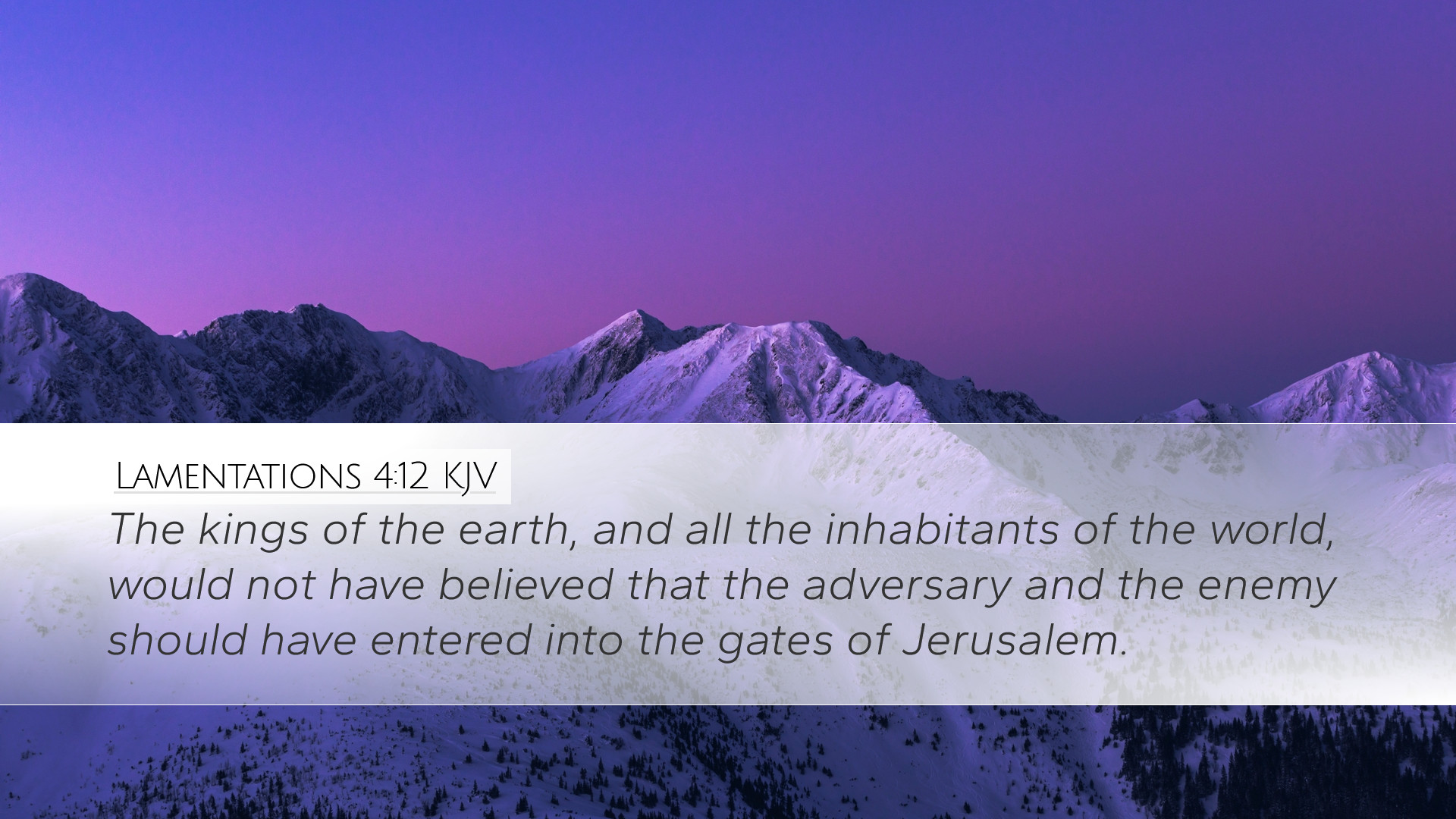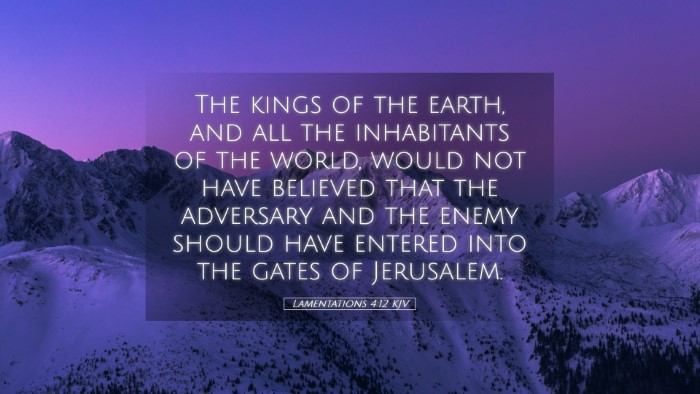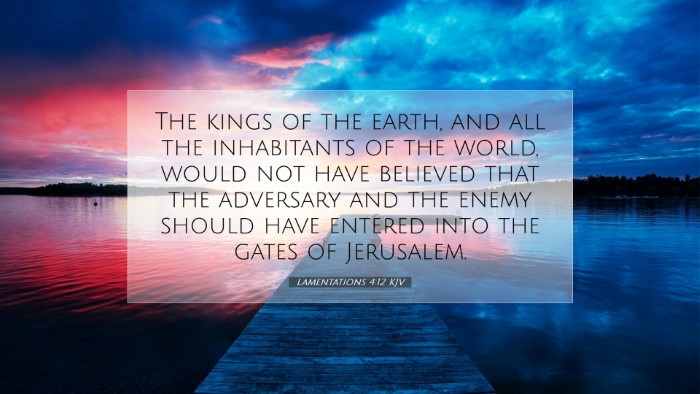Lamentations 4:12
Verse: "The kings of the earth, and all the inhabitants of the world, would not have believed that the adversary and the enemy could have entered the gates of Jerusalem." (Lamentations 4:12)
Summary and Commentary
The Book of Lamentations, traditionally attributed to the prophet Jeremiah, conveys deep sorrow over the destruction of Jerusalem and the consequent suffering of its people. Lamentations 4:12 particularly captures a poignant moment of disbelief and shock regarding the calamity that has befallen the holy city. The verse emphasizes that even those who wield power and authority could not fathom that such devastation could occur, echoing a profound sense of despair and confusion.
Contextual Analysis
This chapter, and indeed the whole book, is a poetic lament that reflects upon the dire circumstances following the Babylonian siege of Jerusalem. The use of the phrase "kings of the earth" and "all the inhabitants of the world" underscores the universal acknowledgment of Jerusalem's once-glorious status and the now-unthinkable suffering.
Theological Insights
- The Sovereignty of God: The passage indirectly points to God's sovereignty over history. Adam Clarke notes that the Israelites underestimated the fierceness of God's judgment, which allowed doubt to seep into their understanding of God's plans.
- The Role of Adversity: Albert Barnes suggests that adversity often leads to a moment of reckoning. The city that once stood as a symbol of God's favor is now a representation of His discipline, causing even the nations to take notice.
- Human Expectations vs. Divine Reality: Matthew Henry stresses that God's ways frequently confound human logic. The inhabitants of the earth expected Jerusalem's walls to stand forever, illustrating the disconnect between perceived security and divine judgment.
Historical Relevance
The disaster referenced in this verse serves as a historical lesson for both Israel and contemporary believers. The fall of Jerusalem symbolizes a fulfillment of prophetic warning and serves as a reminder of the consequences of spiritual disobedience. The universal reaction of disbelief reinforces that all of creation reacts to God's unfolding drama of redemption.
Implications for Modern Readers
For pastors and theologians, this verse invites a reflective approach towards understanding the nature of sin and divine discipline. The shocking reality that even the strong and mighty can fall into despair must lead believers today to consider the fragility of worldly power and the importance of reliance on God's grace.
Reflections on Faith and Hope
In considering Lamentations 4:12, one must not only recognize the tragedy of the moment but also the enduring hope that springs from God's promises. While the passage highlights a period of great sorrow, it also serves as a precursor to restoration. The awareness of God’s sovereignty and the assurance of eventual deliverance must resonate with believers, encouraging them to place their trust in God amidst life's adversities.
Conclusion
Lamentations 4:12 is a call to acknowledge the reality of grief and suffering but also to contemplate God's overarching plan for redemption. Through the reflections of Matthew Henry, Albert Barnes, and Adam Clarke, modern readers are invited to consider the implications of the fall of Jerusalem both in historical and contemporary contexts, reinforcing the message that faith in God remains vital, even in times of profound despair.


